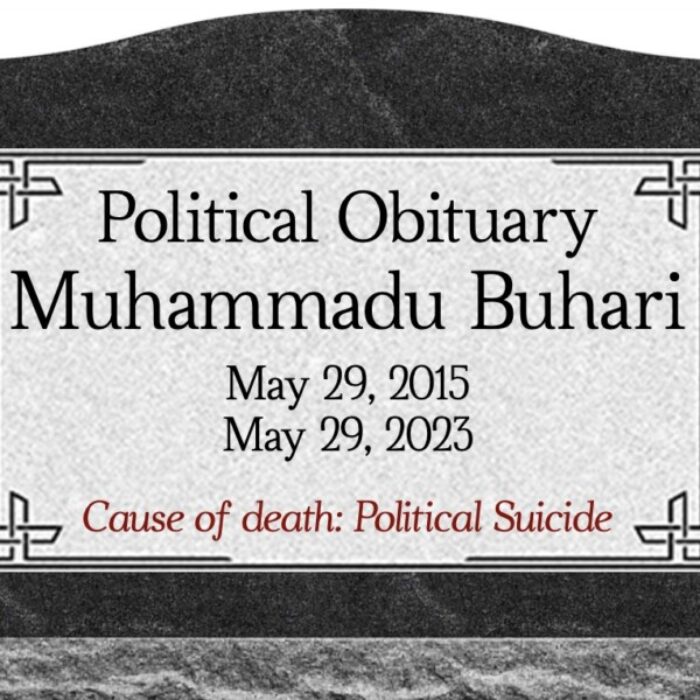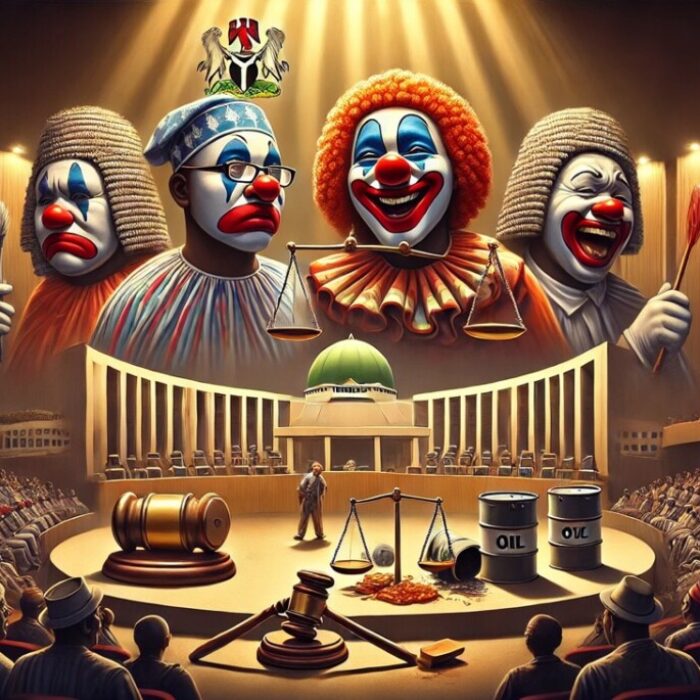By The Editorial Board
The New Tinubu Pledge of Allegiance (satire):
“I pledge allegiance to Tinubu, our esteemed leader,
To stand loyal, faithful, and true to him and his administration,
To invest my energy steadfastly in furthering his destructive agenda,
To turn a blind eye to his missteps and governance malpractices,
To obediently adhere to his policy blunders,
To sing his praises and offer unwavering deference and submission,
To defend his punitive decisions and uphold his dishonor and shame,
So help me God.”
This week, President Tinubu issued his latest arbitrary decree mandating Nigerians to recite the pledge of allegiance in public gatherings. However, in context, it appears his aim is not to inspire loyalty to the country but rather to himself. Once more, confronted with failure, Tinubu turns to another poorly thought-out, self-centered propaganda, aiming to shift the nation’s focus away from his increasing failures.
As life becomes increasingly arduous for Nigerians, the president is awakening to the reality that the nation teeters on the brink of explosion. As the nation’s pressure mounts, he feels like a noose is tightening around his neck. His only defense is to mischaracterize Nigerians as unpatriotic and contemptuous of their own nation. This accusation is profoundly misplaced. In truth, Nigerians are exceptionally patriotic, deeply loving their country while holding justified grievances against their corrupt and inept leaders.
Imposition of a public pledge of allegiance is an attempt to sidestep the fundamental issues fueling the people’s dissatisfaction and rage. This exemplifies a clear shirking of responsibility and a stark failure in leadership.
The nation’s divisions along tribal, religious, regional, party, and socioeconomic lines are already deeply entrenched. Now, a new division has emerged: the Tinubu divide, which categorizes Nigerians as either patriotic or unpatriotic based on whether or not they wholeheartedly pledge allegiance to his government and loyalty to him.
This creates a stark divide between those who support his administration and those who oppose it. Consequently, being labeled as unpatriotic essentially equates to being branded an enemy of the state. This escalation is perilous and threatens the fabric of our democratic society.
The notion that the country should supersede personal interests, party affiliations, religious beliefs, or tribal allegiances holds significant weight, especially in today’s climate of distrust and discord in Nigeria. Unfortunately, Tinubu’s intentions diverge from this noble principle. Instead of advocating for loyalty to the nation, he seeks allegiance to his government, demanding blind compliance with his policies and unquestioning obedience to his mandates.
Loyalty to a president and his government should be earned through tangible benefits delivered to the people. By coercing allegiance to himself and his administration, Tinubu ventures into the dangerous territory of presidential cultism and fascism, both hazardous for a fragile nation like Nigeria.
Patriotism ought to be a genuine expression from the nation’s top office. Upon his inauguration, Mr. Tinubu vowed, “I will devote myself to the service and well-being of the people of Nigeria.” Regrettably, it has become clear that his commitment to the Nigerian people was insincere. Indeed, his actions since taking office have adversely affected those he pledged to serve and safeguard. Given this breach of trust, the question arises: why should Nigerians place their faith in him and publicly pledge allegiance when he has not honored his solemn oath of office?
A genuinely patriotic leader would exemplify an unwavering commitment to Nigeria and its people, prioritizing national well-being over personal gain, political affiliations, and tribal loyalties. He would dedicate himself to addressing the pressing problems confronting citizens, including the sky-high prices of food, fuel, housing, medicine, education, and transportation. Furthermore, he would strive to cultivate harmony among the nation’s varied communities and religions while steadfastly maintaining honesty, transparency, and integrity in his role as president.
However, President Tinubu falls short of these ideals. His call for patriotism is hypocritical, considering his past statements expressing skepticism about the concept of a unified Nigeria (“I don’t believe in one Nigeria” – interview on ThisDay publication, 1997). Mandating Nigerians to pledge allegiance under his leadership is the height of his hypocrisy and arrogance.
History warns us of the dangers posed by despotic leaders who resort to appeals of patriotism to quell dissent and perpetuate their autocratic rule. Tinubu’s actions echo the tactics of authoritarian regimes, which stifle dissent and promote belligerent nationalism.
Nigerians must not be deceived by Tinubu’s facade of enforced patriotism. We must recognize the signs of a leader paving the path to fascism and the eventual demise of the nation. History reminds us of the catastrophic consequences of blindly following leaders who exploit patriotism for their own gain.
Hitler, Mussolini, and other tyrants exploited patriotism and nationalism to sow division and incite conflict, leading their nations into chaos and destruction. Nigeria, as a fragile democracy, cannot afford to tread down this perilous path. We must remain vigilant and steadfast in our commitment to democracy, unity, and progress, lest we succumb to the same fate as those who came before us.





